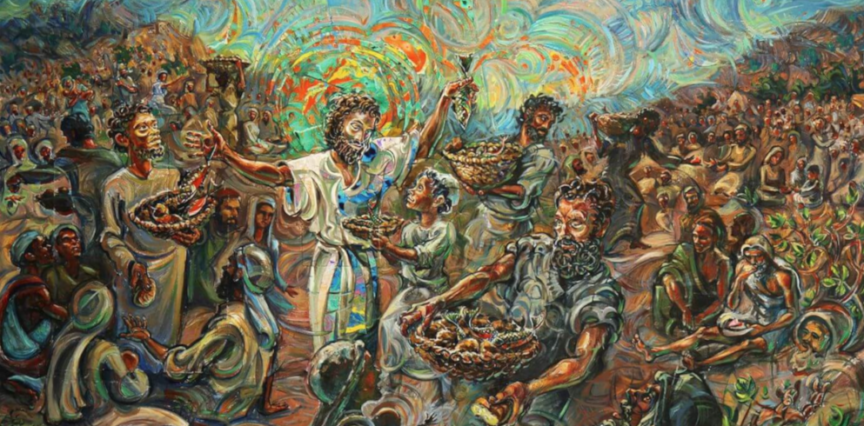Mark said that Jesus and his disciples went to a “deserted place” in order to rest from the demands of their mission. However, crowds of people, who noticed Jesus’ departure, followed him. Mark says like “sheep without a shepherd.”
Matthew, said that after Jesus’ baptism the Spirit drove him out into the “wilderness” to be tempted by the Tempter. Jesus spent 40 days in the wilderness fasting, no doubt praying, and probably meditating on what his life would be when he emerged from the wilderness.
What is interesting is that the same word is used (ereimon) for both terms, deserted place, and wilderness. Both places free of the usual distractions of daily life, and both places where hunger played a big role in discoveries that were made.
For Jesus, hunger was a choice he made, to not be distracted by food, collecting it, and preparing it. For 40 days he did not eat, and his body was diminished in its strength. It was then that the Tempter came to him and suggested a quick fix to the hunger.
For the crowds, hunger was also a choice, in this case two-fold hunger for teaching from Jesus and hunger from lack of food. They were deliberate in their desire to follow Jesus out to wherever he was going so that they could hear more. Maybe this is one of the reasons that Jesus said in the Beatitudes, “Blessed are those who hunger and thirst for righteousness, for they will be filled.” Matthew 5:6.
Hunger can be an important experience if it is chosen, not imposed by starvation. Hunger, in this case, first teaches self-discipline. Intentional in its refusal to be sated by distraction, greed, gluttony, or even indifference. Hunger accentuates a desire for “food” that satisfies like protein rather than addicts like sugar. Hunger helps one to filter out counterfeit and identify what is genuine.
At the end of the sermon on the mount, Matthew said that the crowds were astounded by his teaching because it was qualitatively different than what they heard from their religious leaders, Matthew 7:28-29. Their hunger gave them this attention.
There are some hungers are good because they prompt us to search, reach out, pay attention, and discern. People in Third World countries are often known by the way they make great sacrifices in order to hear a word from Jesus: walking long distances, gathering in places with no conveniences, and sitting for long hours listening to every word. Maybe a lot like the crowds that followed Jesus out to the wilderness.
God of the Wilderness, quencher of hunger. We confess that we are often tempted by fast food. By sugary confections rather than by the food that genuinely nourishes and quenches deep-down hungers. Please help us to journey to the wilderness and learn what it means to want only you. In Jesus’ name, Amen.

